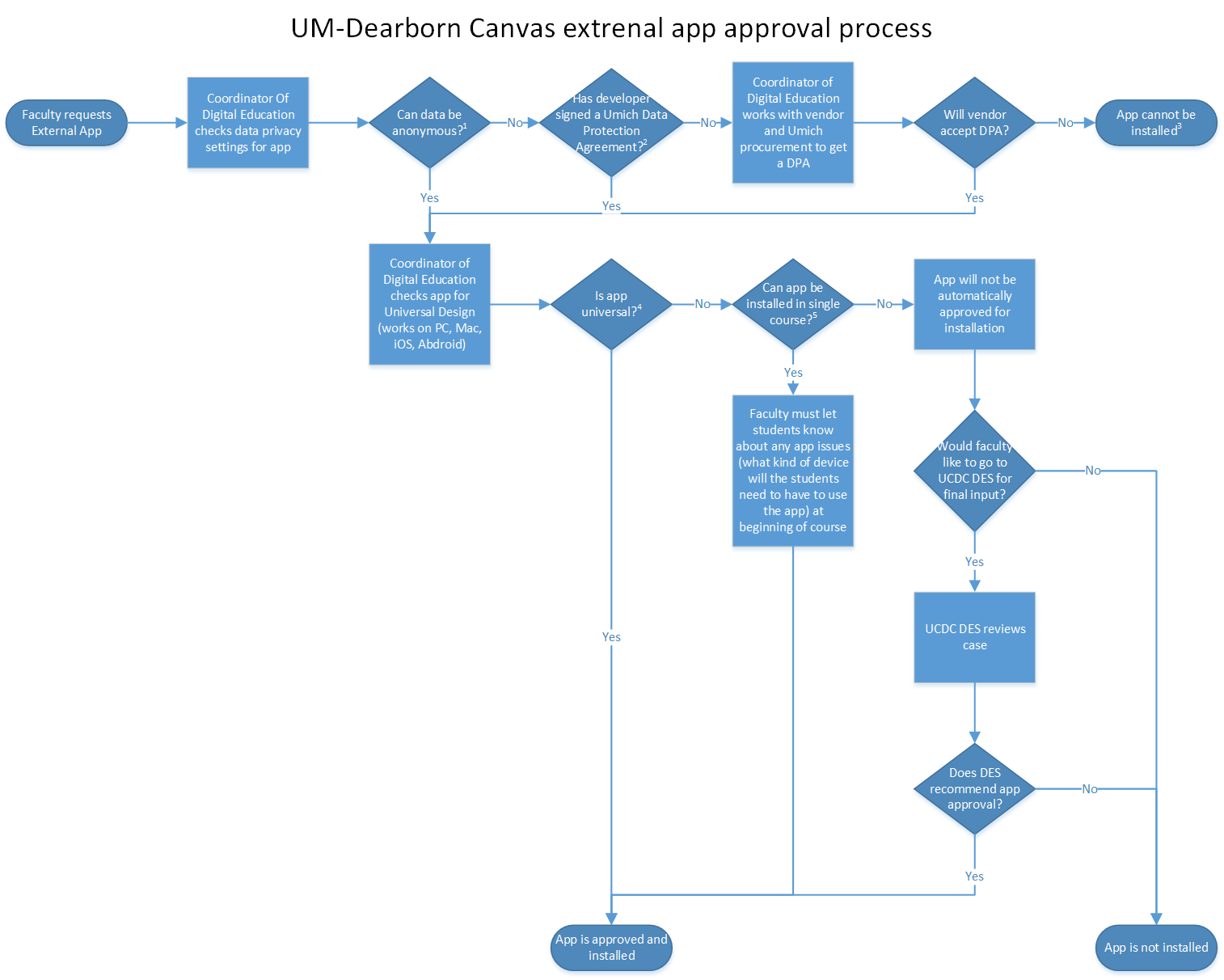Integrating External Apps with the Learning Management System Policy
Faculty often make use of third party software or web-based tools in their courses to improve the quality of learning and assessment. Typically, the user experience and convenience is improved when these tools are integrated with the LMS. However, in some instances, these third-party tools do not support all operating systems, most often the mobile systems found on tablets and phones.
An important principle in managing our LMS and the ecosystem of tools integrated in it is to maintain a high level of accessibility for our students, both in terms of types of devices used and also to address the needs of students with disabilities. To this end, the objective of this policy is to discourage LMS integration for tools with outdated protocols that are not universally accessible by all major operating systems.
At the same time, this policy creates a process for ensuring all external tools which obtain/use student information adhere to the University policies on information technology security and privacy.

Faculty will submit requests for Canvas integration of third party tools/apps to the Office of Digital Education. If the Office of Digital Education finds the app to be universally accessible, the app will be integrated with the LMS after the Data Protection Agreement is signed by the vendor. If the app is not universally accessible, the Office of Digital Education will integrate it in Canvas for a single course if technically possible. If, however, integration for a single course is not possible, faculty have the options of using the app outside of the LMS or asking that the UCDC Digital Education Subcommittee review the request.
A Data Protection Agreement is needed in all cases where FERPA protected information is used regardless of whether a third party tool/app is integrated with the LMS. The Office of Digital Education will facilitate the completion of the Data Protection Agreement with third party vendors via Procurement Services on the Ann Arbor campus.
The process described in this policy is graphically represented here.
- Canvas has a built-in way to anonymize student data sent to external apps, but some apps will not work properly with this anonymized data.
- If actual student data must be sent to the external app, the university requires the vendor to negotiate and sign a data protection agreement. This agreement ensures data is stored securely and will not be used improperly by the vendor (for purposes other than making the app function).
- If the app cannot use anonymous data and the vendor will not sign a data protection agreement with the university, university guidelines dictate that we cannot use the app. There are no workarounds or appeals available in this situation.
- Universal in this case is defined as working on all major operating systems for desktops/notebooks and tablet/mobile devices.
- If the app is not universal, but can be installed into only a single course, it may be considered acceptable.
This policy received approval on December 6, 2017 from the UCDC Digital Education Subcommittee
